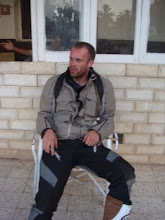The wiki provides a nice summary of what is prorogation. If you click through, you'll note that prorogation normally occurs at the end of a legislative session. In other words, governments normally prorogue when they've ended their legislative agenda but there is still sitting time left on the calendar. Not in Canada, apparently. Instead, we have a prime minister (potentially) asking the GG to prorogue Parliament for a second time in a year, despite a full legislative calendar and apparently very important unfinished legislative initiatives (i.e. their crime package).
The government will also avoid questions on Afghan detainee transfers, which are currently being examined in committee.
I tend not to get too worked up over constitutional conventions. I think they are guidelines until they're not, and I think they rarely describe actual political behaviour with much precision. On the contrary, I take a rather liberal view of democracy in which voters decide what is appropriate at election time. But this is getting ridiculous. The government has twice in a year stated that they are uninterested in trying to govern in our elected house. I am sorry if it's an inconvenience, but it's where the business of our democracy occurs. Coyne goes a few steps farther and more provocative than me, but not that many. He's worth reading here.
Update/Question: Does Stephen Taylor even know what a prorogation is for? It's not to allow committees to be reset. I think that's his justification, though he doesn't say it all that clearly. It's for a PM to end a legislative session early after its business has been finished. Second, perhaps Stephen Taylor could spend a day in an Afghan jail before he makes fun of the treatment innocent people there may have faced.
